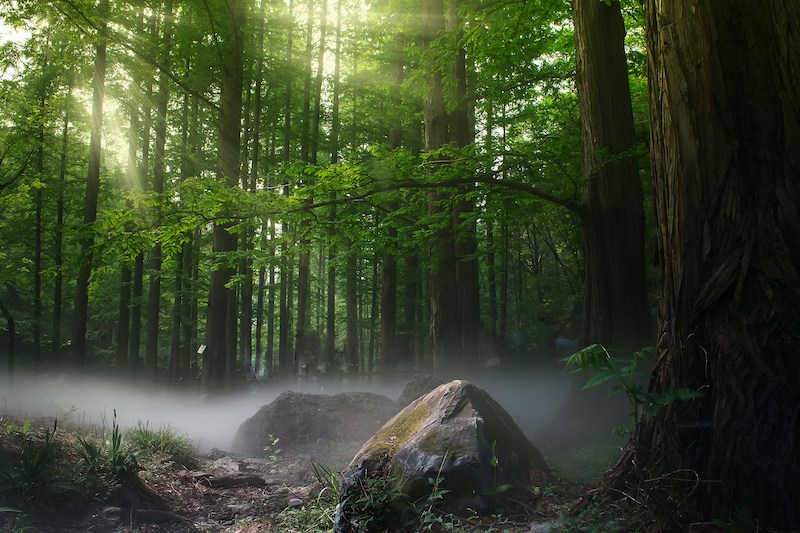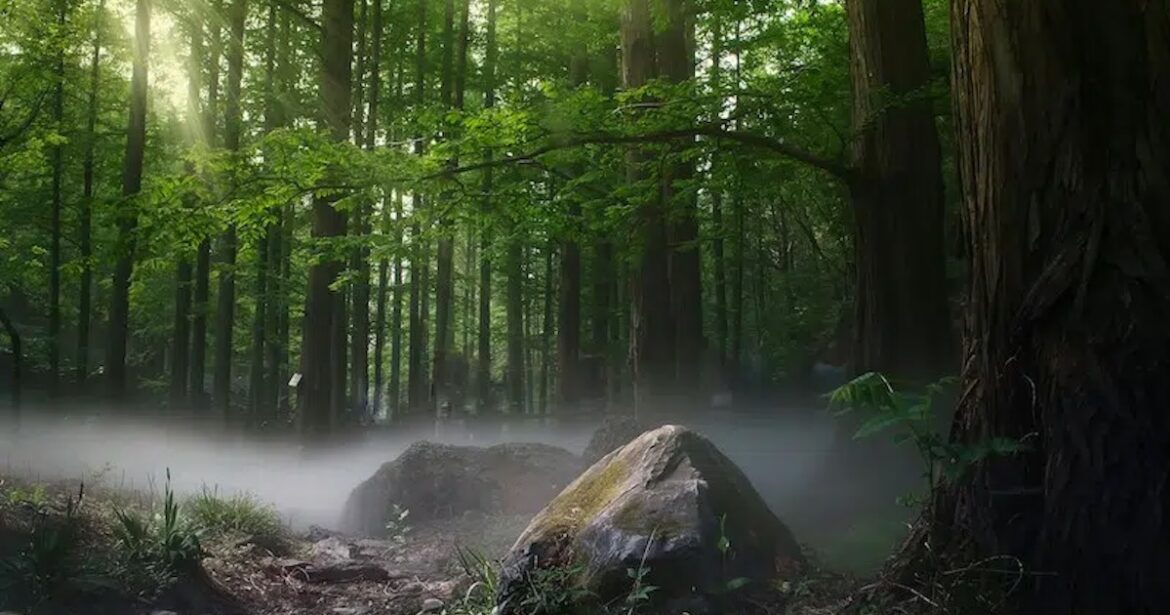

Photo: zhang kaiyv via Unsplash
In the 1980s, Japan was facing a significant crisis in the workplace. Employees were experiencing record levels of burnout and stress, but luckily new studies suggested a possible—and timeless—solution. By 1982, the Forest Agency of Japan introduced the practice of shinrin-yoku, or “forest bathing,” arguing that phytoncides, a chemical released by trees and plants, could boost the immune system.
Now, decades later, it’s a well-known fact that spending time in nature can help alleviate stress. Even if it’s only for 20 to 30 minutes, immersing yourself in a natural setting can greatly impact mental well-being and anxiety levels, while also improving blood pressure, sleep, and cognitive function. It should come as no surprise, then, that shinrin-yoku is still commonplace in Japan, with people delving into forests across the country to drink in a symphony of sights, sounds, and smells. The purpose, according to Junichi Aida, chief guide at Yakushima Geographic Tour, is to “find mental peace and calm through simply being in nature.”
“By simply allowing the senses to guide the experience, physical and mental benefits naturally follow,” Aida continues.
Although its name may imply otherwise, forest bathing doesn’t actually involve stripping down and slipping into a river. Instead, it encourages us to be present, savoring the chatter of birds; the wind as it gently rustles through the trees; the crunching of leaves underfoot; the warmth of the sun as it spills onto our faces; and the crisp air. In these moments, we’re meant to meditate upon nature’s immense grandeur and beauty.
“It’s [about] slowing down,” Mark Ellison, a certified forest therapy guide and trail consultant, told CNBC in a recent interview. “The key things are to find a place where you can spend time uninterrupted, and then notice the things that are around you.”
That may be a challenge now more than ever, especially considering how distracting our daily lives tend to be. Qing Li, a doctor at Nippon Medical School in Tokyo and author of Forest Bathing: How Trees Can Help You Find Health and Happiness, estimates that we spend 93% of our time indoors, and that 80% of Japan’s population lives in urban areas bereft of proper greenery. Based on those figures alone, Li believes that, as a society, we’re suffering from a “nature deficit disorder,” contributing to a host of negative feelings. But that’s where forest bathing comes to the rescue.
“Make sure you have left your phone and camera behind,” he writes in his book. “You are going to be walking aimlessly and slowly. Let your body be your guide. Listen to where it wants to take you. Follow your nose. And take your time. It doesn’t matter if you don’t get anywhere. You are not going anywhere.”
Gary Evans, of the Forest Bathing Institute in the UK, echoes the sentiment: “A better way to frame forest bathing is mindful time spent under the canopy of trees for health and well-being purposes.”
Next time you venture into nature, remember that you’re not only doing yourself a favor, but that you’re actively engaging with the world in which we find ourselves.
The Japanese art of shinrin-yoku, or forest bathing encourages people to simply be present within nature, which offers a slew of health benefits.


Photo: ayumi kubo via Unsplash
Sources: The Japanese art of ‘forest bathing’ can improve focus, lower stress: What it is and how to get the most benefit; Forest Bathing in Japan (Shinrin-yoku); Why Forest Bathing Is a Balm for Your Soul; ‘Forest bathing’ is a simple, free way to better physical and mental health. Here’s why; Effects of forest environment (Shinrin-yoku/Forest bathing) on health promotion and disease prevention —the Establishment of “Forest Medicine”; Getting back to nature: how forest bathing can make us feel better
Related Articles:
New Study Reveals the “Sweet Spot” of Steps You Need To Take Every Day To Stay Healthy
New Research Reveals That Participating in Arts and Culture Events Positively Impacts Physical and Mental Health
Brooklyn Botanic Garden Is Celebrating 100 Years of Its Renowned Bonsai Collection


AloJapan.com